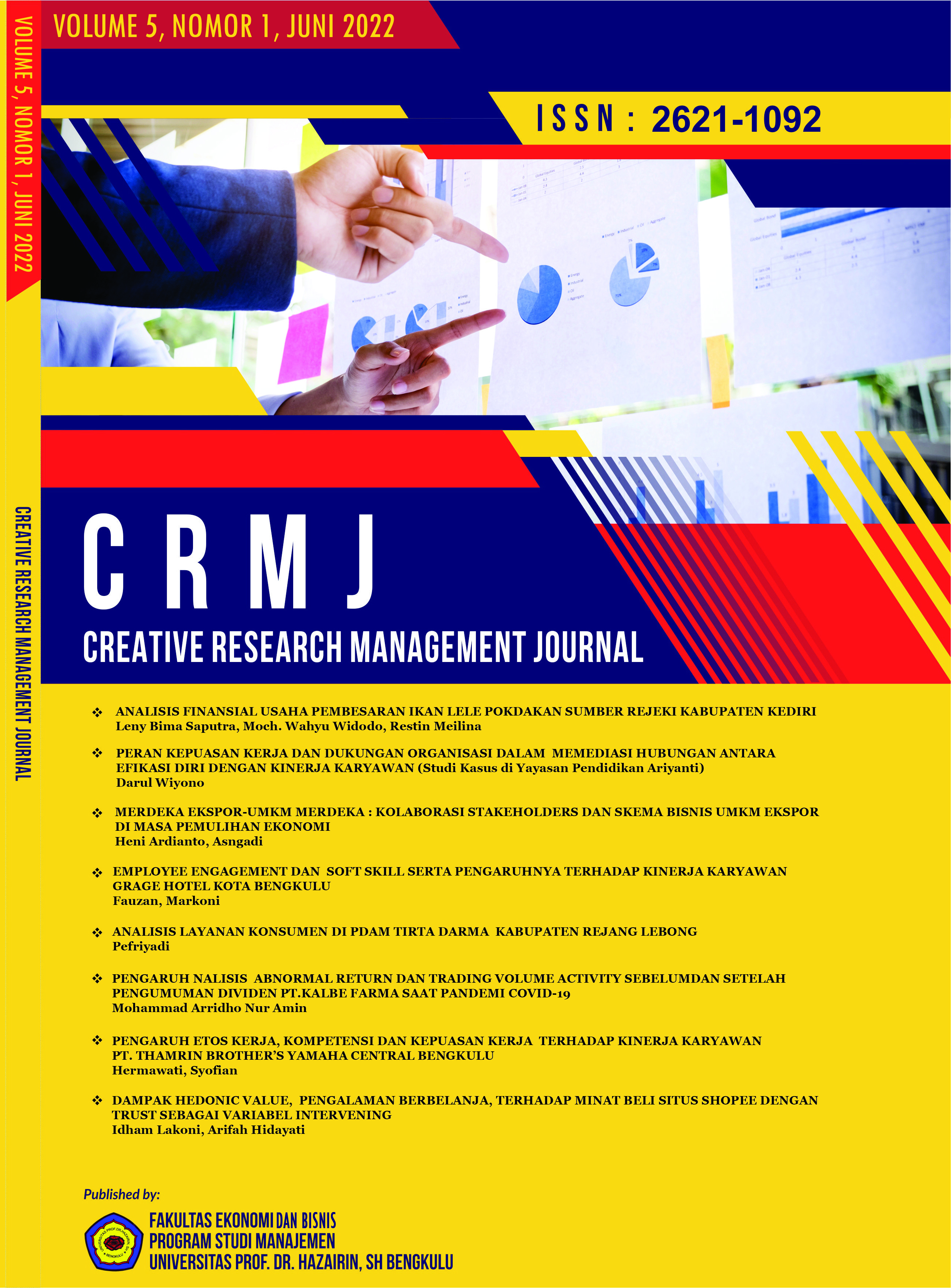MERDEKA EKSPOR-UMKM MERDEKA : KOLABORASI STAKEHOLDERS DAN SKEMA BISNIS UMKM EKSPOR DI MASA PEMULIHAN EKONOMI
DOI:
https://doi.org/10.32663/crmj.v5i1.2621Kata Kunci:
UMKM, Penta Helix, Technosociopreneur, Digitization, ExportAbstrak
This study aims to formulate strategic steps in the form of collaboration models and business
schemes through collaboration between interested parties in providing export space for
MSMEs so that they can make independent MSMEs to survive and compete in the economic
recovery period. The research is conducted with a qualitative approach to find models or
concepts that can be used to deal with export opportunities. Data were analyzed descriptively
based on data obtained through reading materials consisting of various literatures to obtain
relevant secondary data. The results show that collaboration between stakeholders are
expected to be a model that can strengthen the competitiveness of MSMEs in the global
(export) market. Entrepreneurs must be equipped with knowledge related to export
opportunities through onboarding business schemes such as coaching, empowerment,
licensing management, certification to curation to survive and rise and compete in the global
market. This of course needs to be realized with good synergy between stakeholders so that
the transformation process can run well. In addition, the government as the coordinator must
be able to synergize with other stakeholders actively to discuss developments as a form of
coordination and material for continuous evaluation.





